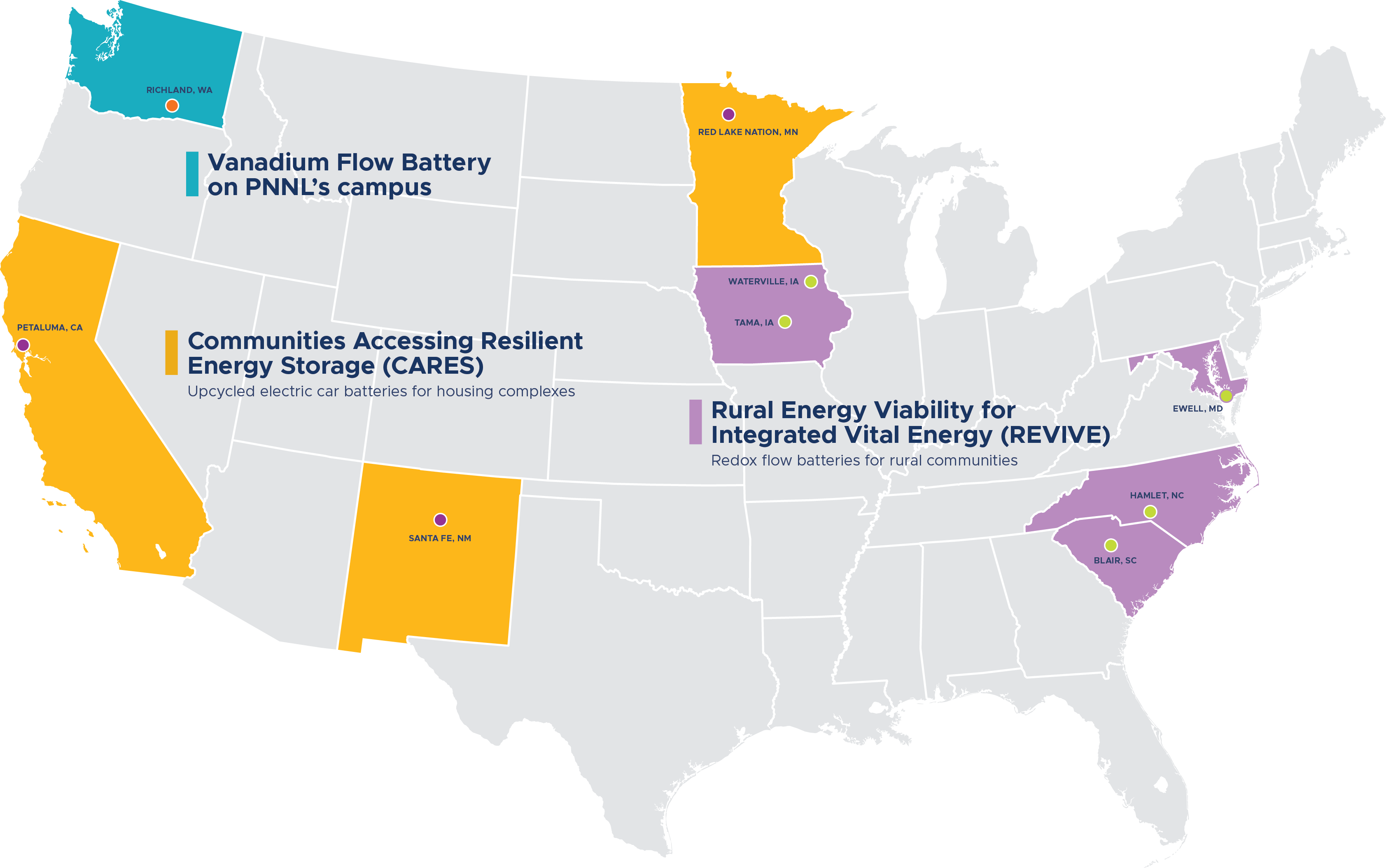Supported by $10m funding from the U.S. Department of Energy, Invinity Energy Systems is delighted to be providing the vanadium flow battery for Pacific Northwest National Laboratory’s 24 hour energy resiliency project.
Wednesday 29 November 2023
Pacific Northwest National Laboratory (PNNL) recently published more details of their latest flow battery project for grid scale energy storage that will evaluate the technical performance of Invinity’s next-generation vanadium flow battery for up to 24 hours of peak discharge on its own campus in Richland, WA.
“This addition to our campus represents a significant milestone in PNNL’s commitment to grid resilience and its ongoing pursuit of our net-zero program goals.
A battery that can provide power for as long as 24 hours will play an important role in enhancing our energy resilience, increasing flexibility, and reducing our energy costs, while also giving our researchers the opportunity to learn from the system’s operation.”
– Kathleen Judd, Technical Lead for PNNL’s NZERO initiative
PNNL, which has a long history of advancing the state of the art in emerging energy technologies, has been selected by OCED to purchase and demonstrate a 12 MWh installation of Invinity’s next-generation product over a 10-year period. PNNL has conducted extensive research into flow batteries in general and vanadium-based flow battery electrolytes in particular. Through this programme, PNNL will seek to explore the boundaries of the services and capabilities that long duration energy storage can deliver to the grid operators, energy consumers and microgrid operators across the
Above: How flow batteries work – video from PNNL
Vanadium flow batteries are designed to store massive amounts of energy from renewable energy sources, such as wind and solar, for long periods. In addition to learning about how the technology performs, this project comes with some added benefits to PNNL’s operations, including enhancing campus resilience and helping PNNL get one step closer to achieving net-zero greenhouse gas emissions as part of the laboratory’s NZERO Initiative. The battery will also sustain facilities with critical functions, such as material preservation and equipment maintenance, during prolonged power outages.
“We anticipate this project will help pave the way to broader commercial adoption of long-duration energy storage (LDES) for stakeholders with similar resilience, environmental, and economic goals.
“Not only will this system improve PNNL’s resiliency, but the performance and operational data from this project will help guide new LDES applications across the country.”
– Vincent Sprenkle, Director of the Grid Storage Launchpad and PNNL energy storage expert

Above: Map showing locations of the OCED energy storage deployment projects (Source: Melanie Hess-Robinson/PNNL)
In addition to the flow batteries field validation on the PNNL campus, PNNL is also providing technical assistance and contributing their expertise in energy equity and storage to two additional projects funded by OCED for which Invinity is also supplying the vanadium flow batteries. For the Rural Energy Viability for Integrated Vital Energy (REVIVE) project, the National Renewables Cooperative Organization and its project partners are bringing flow batteries to disadvantaged rural communities. For REVIVE, PNNL will carry out the techno-economic analyses and data collection for the project. Together with the PNNL Campus project, these efforts will generate the most comprehensive set of flow batteries operational data ever collected.